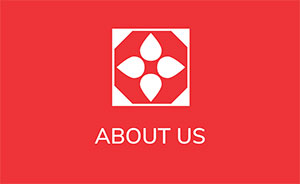FDA is Redesigning How Drugs Trials are Done
The FDA (US Food and Drug Administration) is revising clinical trials to improve safety, and CLL Society’s Dr. Brian Koffman was asked to serve as the patient representative on a joint panel of the AACR (American Association for Cancer Research) and FDA.
To help understand the basics about clinical trial phases, CLL Society has written this introduction to trials and the drug approval process.
Although, several changes are afoot.
Project Optimus is all about dose optimization in phase 1 trials, resulting in more extensive trials and often slower readouts of the results. FDA is also pushing for more phase 2 trials to be randomized controlled trials (RCT) with at least two arms. RCTs are the gold standard, but they, too, are bigger, involve more patients, and are always more costly. Patients who want a chance to gain early access to a novel therapy will no longer be assured of their choice in these phase 2 trials as they have grown used to. Now, in phase 3 trials, the use of overall survival is being encouraged as the most important outcome. This is, without doubt, the most important outcome, but also the slowest to read out and the most complicated to correctly interpret in slow-moving cancer such as chronic lymphocytic leukemia / small lymphocytic lymphoma (CLL / SLL), where there are great options patients can take advantage of after the trial. The FDA is also, for the most part, discouraging crossovers as they can conflate the results.
While all these changes can lead to safer drugs and more optimized dosing, the cost will be a much slower and more expensive drug development. Patients could be denied access to potentially lifesaving therapies due to delays in development, inability to crossover to more active therapy and most worrisome, decisions made by pharmaceutical companies that the increased costs no longer justify the risk of developing therapies for rare cancers like CLL / SLL, especially when there are already excellent options in place for front and second-line treatment.
It’s complicated. The FDA is trying to do right by patients, but I argue the enemy of good is better. The very best-designed trials will never be perfect in predicting all possible adverse events and safety issues. Many problems will never be discovered until the drugs are widely used outside clinical trials. Doses will need to be adjusted as more and more patients try the drug in the “real world.” In my opinion, this should be understood as a personalized treatment adjustment, not necessarily a failure of the dose-finding trial.
As the patient advocate on the FDA/AACR panel, I pushed for a balance of safety and speed. Don’t stifle the process. Being too slow has a cost. Patients have and will continue to die waiting for a new therapy. Ease and speed of development are important considerations, too.
I don’t have all the answers, but I do have questions that I hope represent the concerns of fellow cancer patients.
Here is the link to the video of the workshop I participated in: FDA-AACR Workshop on Optimizing Dosages for Oncology Drug Products.
Stay strong. We are all in this together.
Brian
Brian Koffman MDCM (retired) MS Ed (he, him, his)
Co-founder, Executive VP, and Chief Medical Officer
CLL Society, Inc.

















